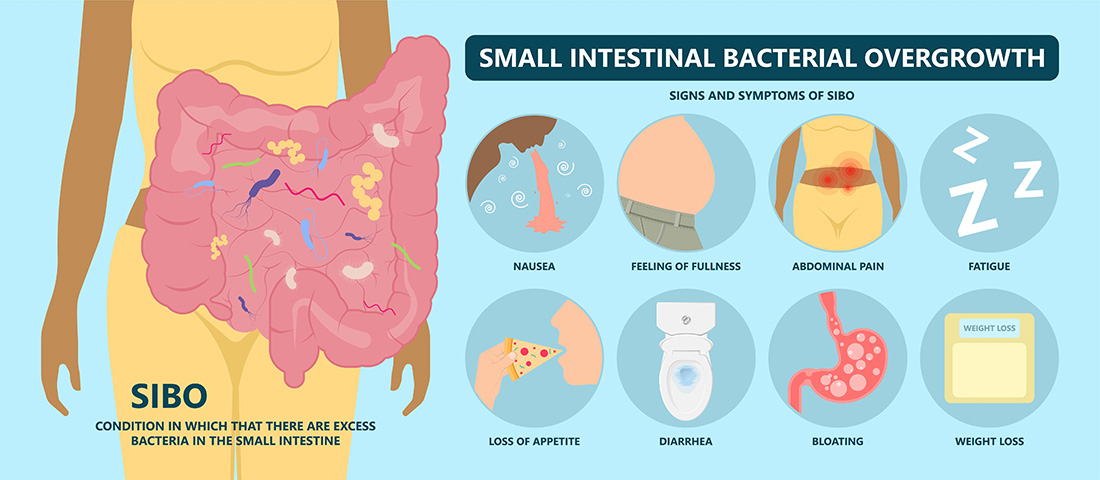Our bodies maintain a balance of gut flora through a network of chemical and mechanical functions. Small Intestinal Bacterial Overgrowth (SIBO) is an imbalance of microorganisms that maintain healthy digestion. When too many bacteria, or the wrong kind, populate the small intestine, it can lead to symptoms such as gas and diarrhea. It can also inhibit the body's ability to digest and absorb nutrients from food.
While it's assumed that this imbalance is generally underdiagnosed, some studies indicate that up to 80% of people with irritable bowel syndrome have SIBO. Mild cases may be asymptomatic, while moderate cases feature many non-specific symptoms that overlap with other conditions.
SIBO Symptoms Often Include…
- Loss of appetite
- Abdominal pain
- Nausea
- Bloating
- An uncomfortable feeling of fullness after eating
- Diarrhea
- Malnutrition
Medical Testing for SIBO Condition
When left untreated, SIBO can lead to complications including nutrient deficiencies, dehydration, and malnutrition. The condition is treatable but because it can recur, it's important to pursue treatment. Finding the cause is essential, whether it is a structural problem in the small intestine, prolonged or overuse of medications, or retaining waste too long in the small intestine before emptying.
If symptoms and medical history suggest SIBO, your provider may suggest a breath test that measures hydrogen and/or methane levels to determine the presence of gas-producing bacteria in the gut. If levels are above a certain number, it suggests an abundance of bacteria. Additional tests may also be prescribed to look for signs of causes and complications. These can include blood tests for vitamin and blood protein deficiencies, a stool test for excess undigested fats or bile acids, and/or imaging tests to check for structural problems.
SIBO Treatment Plan
Since SIBO is often a complication of another condition, your treatment plan will need to address the overgrowth, underlying cause, and any complications. A course of antibiotics is the standard medical treatment for bacterial overgrowth. Your provider will then seek to manage complications which may mean nutritional support and supplementation for vitamin and mineral deficiencies or a strict short-term diet to manage symptoms and then a modified longer-term diet plan to replenish your nutrition and keep bacterial overgrowth in check.
Ultimately, your healthcare providers will want to locate and treat the underlying cause of your SIBO which may require additional testing. If a motility disorder is suspected, a motility agent may be prescribed to help stimulate the process and keep things moving. If a structural problem is a culprit, surgery may be required to correct it.
Contact Us for a SIBO Diagnosis
If you suspect you might have SIBO symptoms, don't hesitate to contact us. We can diagnose Small Intestinal Bacterial Overgrowth (SIBO) and devise an effective treatment plan if necessary. Call 480-949-1260 today!





